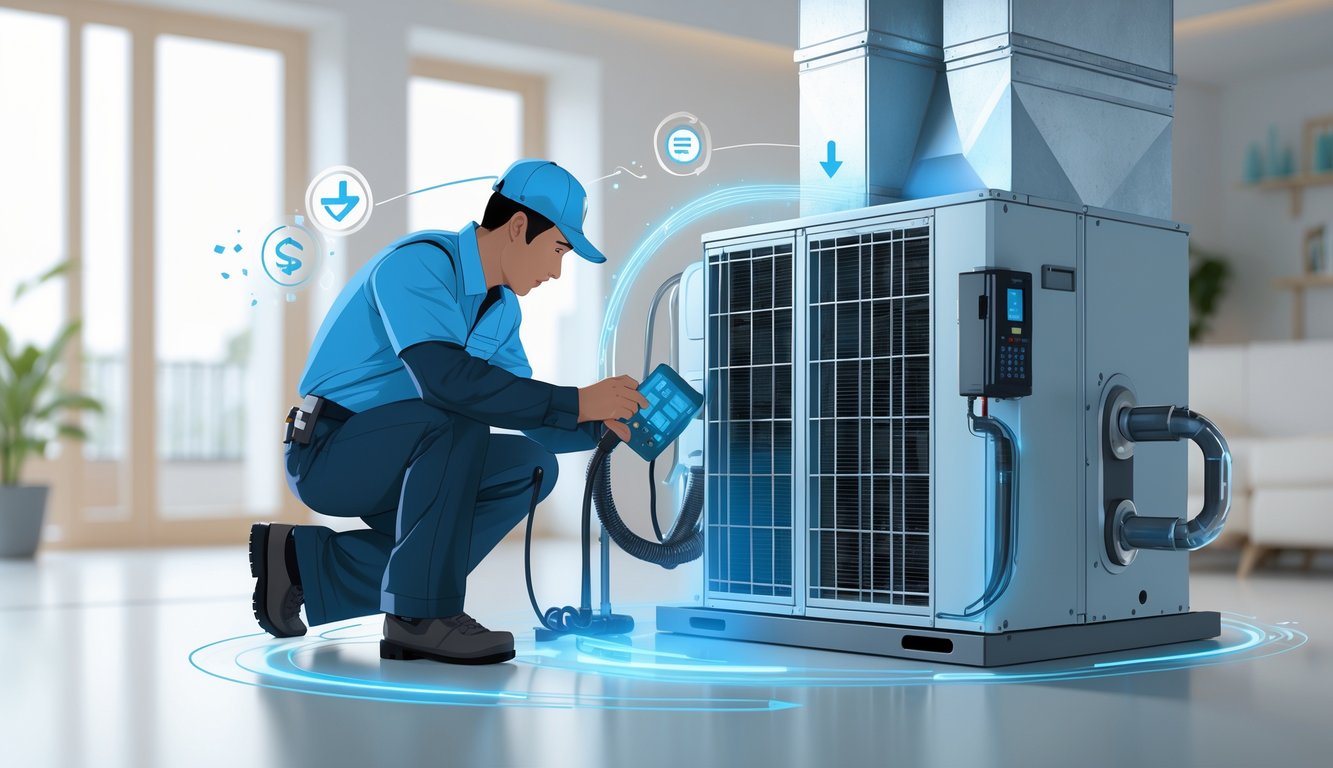
Enhancing Safety and Peace of Mind
Why do we all ignore weird HVAC noises? I’ve done it. Fires, electrical shorts, that burning dust smell (is that ever normal?)—all it takes is one inspection to catch something before it turns into a nightmare. It’s not just about saving money; it’s about not breathing junk or risking your family’s safety.
Addressing Safety Issues Proactively
Opening the air handler and seeing scorched wires? That image sticks. I’ve seen it twice. Don’t try to clean that with a feather duster. Electrical problems don’t fix themselves—a blown fuse could mean last week’s power surge almost melted your system. Superior Comfort Heating and Cooling says regular inspections are the best way to dodge fire risk because techs actually catch loose wires, aging parts, and even rodent damage.
Skip the check, and you miss all kinds of hazards: leaking coolant, filters clogged into science experiments, or bad venting. Not paranoia—data shows annual inspections cut HVAC-related insurance claims by 20%. The Carbon Trust lays it out: ignore your system, and it just gets riskier.
Enjoying Peace of Mind with Regular Checks
I forget how much better I sleep after a tech leaves. It’s not just crossing something off the list—it’s knowing someone squeezed into the crawlspace and didn’t come out coughing up dust. Having a pro check refrigerant lines and safety controls means I don’t have to panic about another 2 a.m. breakdown. Peace of mind isn’t just a phrase—nobody wants after-hours calls from tenants or employees about a freezing office or a CO2 alarm.
One landlord I know gets quarterly visits just for the calm. Utility bills drop, but honestly, it’s about keeping people safe and not getting frantic texts. Even the UK government nudges employers this way, because comfort and safety matter more than any fancy thermostat. Sometimes, it just feels good to see a checklist with zero surprises and know you’re not about to be the next disaster story.
Recommended Frequency and Timing for Inspections
So, I keep hearing people talk about skipping furnace tune-ups—like, what, you just pretend your HVAC is “fine” and hope for the best? That’s about as smart as ignoring a toothache. And then, surprise! The bills show up, or something breaks down when it’s freezing or boiling outside. Preventive, my foot. Most folks just wait until it’s a crisis.
Why Seasonal Inspections Work Best
Allergies hit, and if I don’t check my HVAC filters right after the pollen dump, my utility bill jumps. I’ve tested this. Every time. And, yeah, HVAC pros keep telling me the same thing: after a season change, your system’s working overtime. Like, the AC sits there all winter, then you blast it the first hot day—dirty coils can bump your energy use by 20% or more. That’s not just marketing, either.
Nobody talks about how the same ductwork handles both heating and cooling, so what’s supposed to happen when it’s freezing in April or suddenly 90 in September? Weird gap, right? I never hear anyone mention that. If you get your system checked before you actually need it, you’ll catch a bunch of problems—clogs, safety stuff, whatever—that you’d never notice on your own. Industry people swear by this, and honestly, I just want to sleep at night without worrying my furnace is plotting against me. Here’s the industry playbook if you don’t believe me.
Setting Up a Yearly HVAC Inspection Schedule
Reminders on my phone? Annoying, yeah, but not as bad as waking up to frozen pipes or sweating through a July heat wave. I try to line up inspections in spring and fall—usually when I’m on a cleaning binge anyway. User manuals (yes, I read them, don’t judge) always say at least once a year, but if your house is old or you have pets, you probably need more.
Ever tried calling an HVAC tech when it’s 10 degrees out? Good luck, they’re all busy. I learned this the hard way. Scheduling in the “shoulder seasons” (that’s spring and fall, apparently) means you don’t have to fight for an appointment or pay “emergency” prices. Seriously, two afternoons off a year is better than a $450 Sunday repair. Plus, the tech can spot small problems before they become wallet-destroyers—energy savings of 10–15% aren’t just made up, see for yourself.
Still, people put it off. But they’ll clean their driveway every month? Makes zero sense. My last utility bill didn’t either.